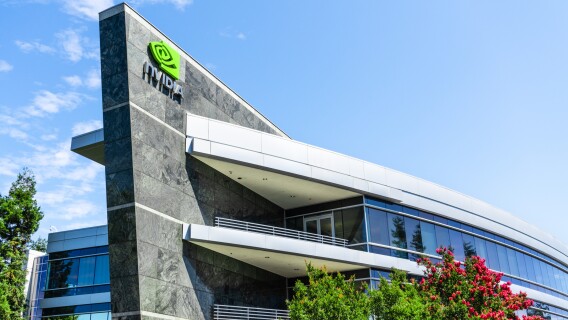On Wednesday, Nvidia (NVDA) notched three simultaneous wins in its belt: its share price broke above 1,200 for the first time ever, the company achieved a $3 trillion market capitalization, and it usurped Apple (AAPL) as the second-largest company in the world, trailing only Microsoft (MSFT).
In the days since, Nvidia has surrendered all three of those achievements, at least for the time being, with shares falling back below the 1,200 level after trading as high as 1,255 Thursday morning.
Given the pace of recent gains for what is the most important, if not the biggest, company these days, it’s fair to wonder when Nvidia may finally be the most valuable company in the world and leave Microsoft, and all the others, in the dust.
[text_ad]
For context, Nvidia’s rise from a $1 trillion market cap to a $2 trillion market cap took only 180 days, the fastest on record.
That was on March 1. The rise from $2 trillion to $3 trillion took only 97 days.
That is a staggering pace.
Even with the recent dip, Nvidia’s path to becoming the most valuable company in the world seems all but inevitable.
When Might NVDA Overtake MSFT?
At the time of writing, Nvidia is trading with a market cap of $2.935 trillion, compared to Microsoft’s market cap of $3.156 trillion, a gap of only $221 billion, or 7.5%.
Assuming no change in the value of MSFT shares, NVDA would only need to achieve a pre-split price of around 1,290, which would translate to a post-split price of 129 a share (shares will reflect a 10-for-1 forward split on Monday, June 10, 2024).
Assuming that any market conditions that support NVDA continuing to run towards all-time highs would also favor MSFT, it’s fair to suppose that NVDA will actually need to outpace MSFT a bit further.
So, let’s bake that into our assumptions.
Thus far in 2024, MSFT has returned 14.4%, roughly in line with the S&P 500’s 12.8% YTD gain.
NVDA, on the other hand, has returned a staggering 147.6%, more than 10 times MSFT’s returns.
If we extrapolate that forward, at the time NVDA would have surpassed MSFT’s $3.156 trillion market cap, MSFT would have gained a bit of ground, to about $3.18 trillion (that assumes MSFT’s gain is 10% of NVDA’s, in line with the YTD performance).
It wouldn’t take much more of a push beyond that. A return of ~8.5% would offset any corresponding bump in MSFT stock.
But, given the variance in daily returns (and for symbolic purposes), we can fairly safely assume that if NVDA eclipses a pre-split price of 1,300 per share (130 per share after the split) it will not only achieve that round-number milestone, but it will also overtake Microsoft as the most valuable company in the world.
Will it happen? As we’re fond of saying at Cabot, I don’t know, my crystal ball is in the shop. But I wouldn’t bet against it.
At the same time, in a conversation with my colleague and co-host Chris Preston on a recent episode of our Cabot Street Check podcast, we discussed Nvidia’s valuation and are both in the “hold” camp.
Nvidia’s performance over the last few years has been unprecedented. We’re talking about a trillion-dollar company that doubled its market cap in six months and added another trillion in roughly the next three.
Betting against Nvidia these days seems to be nothing short of a fool’s errand, but the returns would have to stay unprecedented going forward to justify opening a new position given the run it’s had.
So if you’re holding NVDA shares, enjoy the ride. If not, take solace in the fact that if you own ETFs or mutual funds in your 401(k), you already have some exposure to NVDA, probably just not as much as you’d want in hindsight.
[author_ad]

